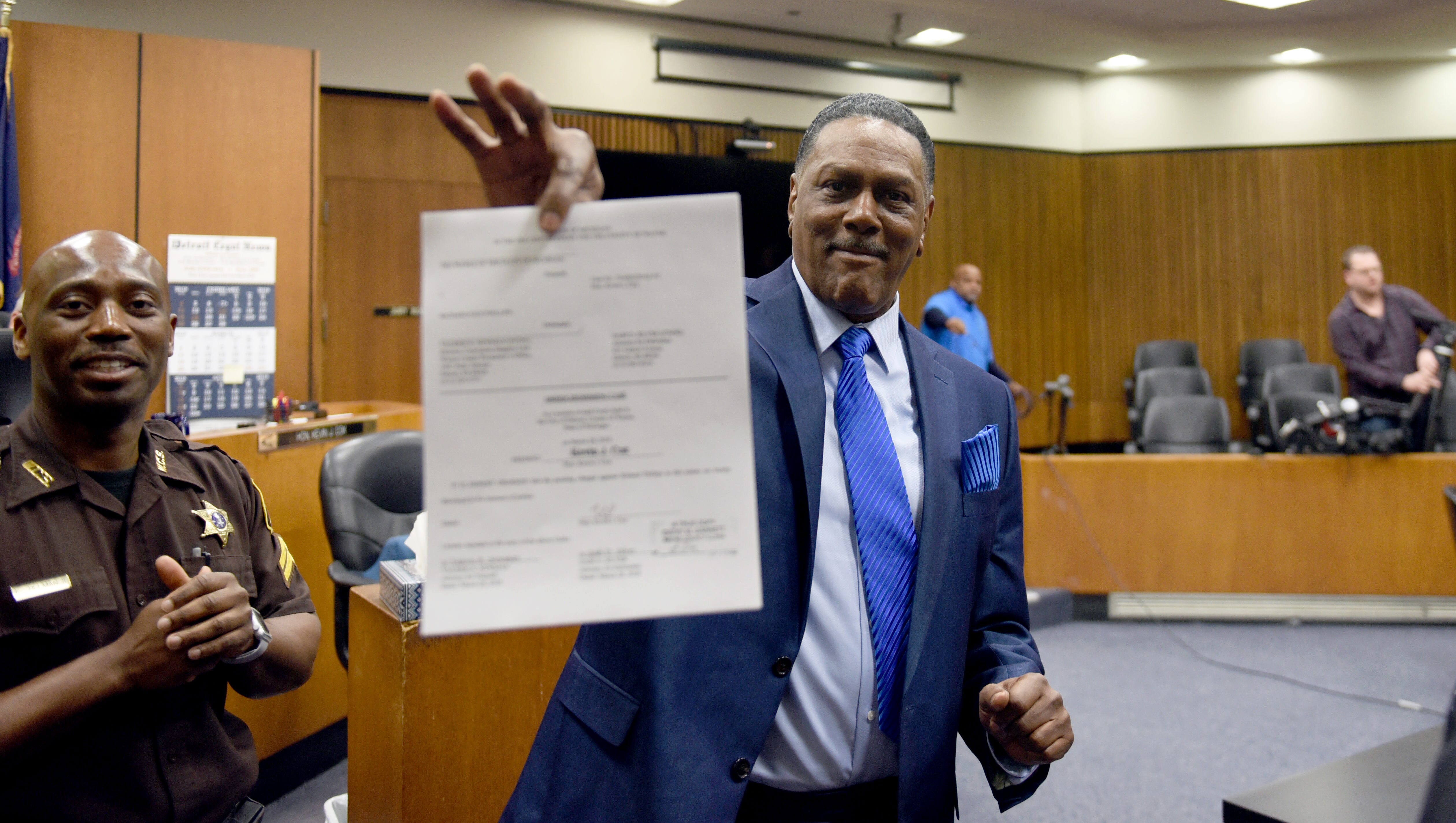Bill would add $10 million to Michigan exoneration fund

A state representative has introduced legislation that would put $10 million into MIchigan's fund to compensate exonerated ex-prisoners, which is in danger of being depleted.
Rep. Steve Johnson, R-Wayland, has introduced House Bill 4286, which would allocate the money into the fund, which was created with the 2016 passage of the Michigan Wrongful Imprisonment Compensation Act.
The law dictates that exonerated ex-inmates be paid $50,000 for each year spent in prison — but state officials said last month there's only $1.6 million left in the fund, which is only a fraction of the money wrongfully-convicted ex-prisoners claim they're owed.
“While I am glad that compensation for the wrongfully convicted was put into law in 2016, the State of Michigan dropped the ball in providing reliable funding, which is totally unacceptable and cannot be permitted to happen again," Johnson said in a press release.
"My legislation would ensure that this deficiency will be met to ensure that those who have been wrongfully imprisoned receive the compensation they are lawfully due," he said.
Johnson's bill has been referred to the House Appropriations Committee for consideration.
Advocates for the wrongfully-convicted say the bill is a step in the right direction, although they insist the $10 million wouldn't come close to paying those who are owed money.
"It's a good start, but it's not nearly enough," said attorney Gabi Silver, who represents seven wrongfully convicted former inmates. Silver said just three of her clients — Thomas and Raymond Highers, who each spent 25 years in prison; and Richard Phillips, who was wrongfully incarcerated for 46 years — are owed $4.8 million, or three times the amount in the exoneration fund.
"If their intent is to pay people, then that's just not enough money," Silver said. "They need to pay these guys. (Phillips) has no money, so he's forced to sell the only possessions he has in the world, his paintings, just to survive."
Phillips, who was released from prison in March 2018 after being convicted in 1972 for a murder he didn't commit, said because financial difficulties forced him to sell watercolors he'd painted while in prison.
"It's just so wrong to leave these guys out here with nothing after they've gone to prison for something they didn't do," Silver said.
Johnson's spokesman Jon Mieczkowski said the $10 million proposed in the bill would be a stopgap until October, when the next state budget would take effect.
"Then, in the future, enough money needs to be appropriated (by the governor) to meet those obligations," Mieczkowski said. "But the intent (of Johnson's bill) is to provide that $10 million until the new budget comes in."
Whitmer's spokeswoman Tiffany Brown has declined to say whether the governor would support putting more money into the exoneration fund.
"At this time, we are not commenting on specific items in the budget until the Governor releases her executive budget in March," Brown told The News last month.
Silver and fellow attorney Wolfgang Mueller, who also represents clients who were wrongfully convicted, estimate the state owes between $20 million and $25 million to innocent people who served time in prison.
"If someone was wrongfully convicted, they should be compensated, and I think with the new attorney general (Dana Nessel), there'll be a shift in the mindset, and the intent of the statute will be realized," Mueller said.
ghunter@detroitnews.com
(313) 222-2134
Twitter: @GeorgeHunter_DN